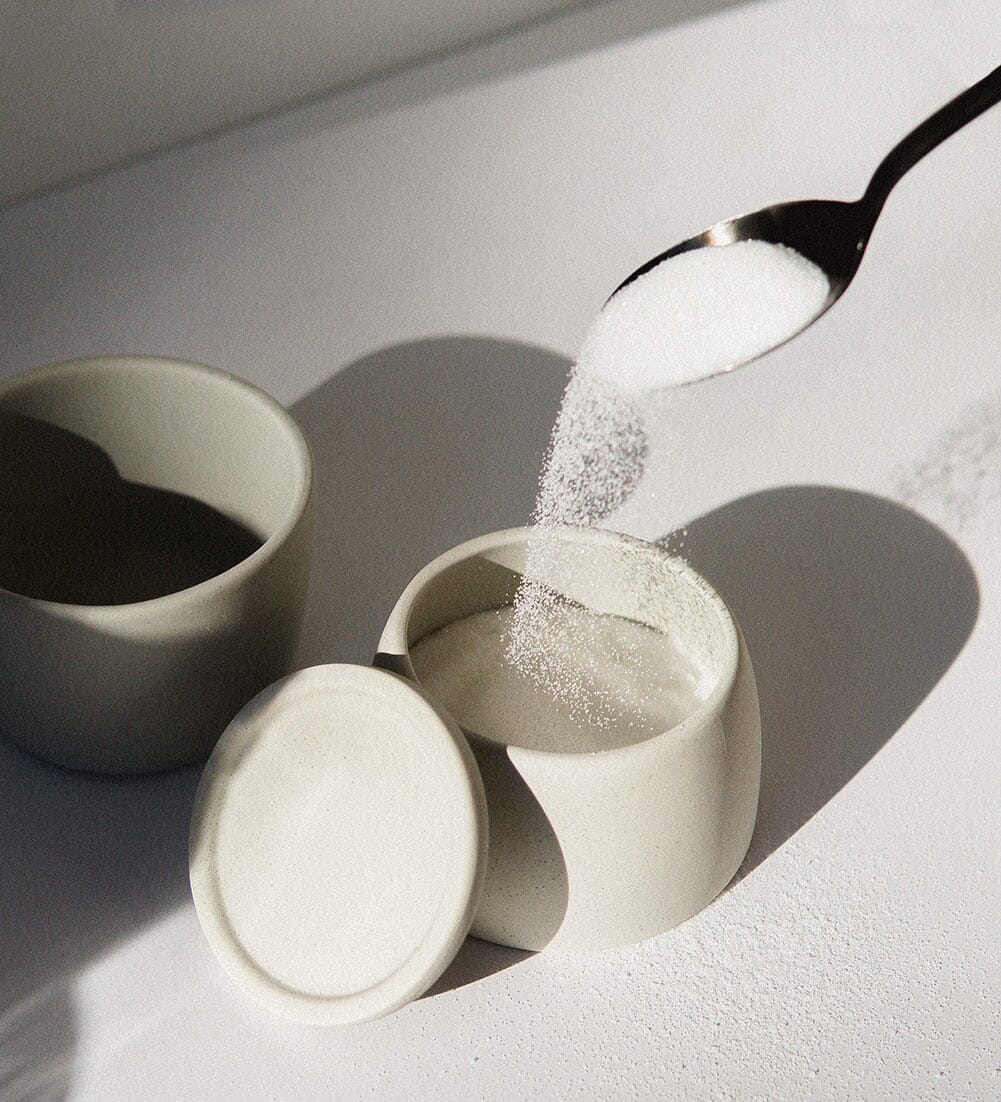Recently, there has been a lot of talk about erythritol and its safety as a sweetener. Although many studies show that erythritol is a safe and non-harmful ingredient1,2, it has stepped into the spotlight as a new villain among foods. This is due to a study conducted by the American Cleveland Clinic3,4 that went viral shortly after its publication. This study has linked an increased risk of cardiovascular disease to higher levels of erythritol in the bloodstream and therefore raises a warning finger about excessive consumption. It also emphasizes that further research should be done to ensure the safety of erythritol use.
Criticism and comments
However, this study has been met with strong criticism. Many academics, experts and professionals have questioned the way the conclusions were drawn. In an interview with The New YorkTimes5, Dr. Dariush Mozaffarian, a dean and professor of nutritional science and medicine, explains that the majority of participants had either cardiovascular disease or multiple risk factors for cardiovascular problems before the study began, potentially skewing the data. Dr. Chuck Dinerstein writes in his article for the American Council on Science andHealth6 that there is an even greater reason to be skeptical of the study. Previous research7 has shown that the body converts leftover glucose into erythritol. This would mean that there is a high probability that people who consume a lot of sugar have higher levels of erythritol in their blood plasma.
As the study did not control the subjects' diet, it cannot be excluded that this factor contributed to the final amount of erythritol measured in their blood plasma. The Science Media Center has made a detailed compilation8 of comments and criticisms that address these and similar factors that the Cleveland Clinic failed to take into account in the study.
Having said that, some argue that the study's conclusions are wrong or exaggerated. However you want to interpret the study, there is a good point that neurologist Dr. Steven Novella and nephrologist Dr. F. Perry Wilson make in their podcast The Skeptics Guide to TheUniverse9: "We shouldn't reflect on the results of the study in a vacuum. Even if erythritol really did increase the risk of heart attack and stroke, it still replaces sugar, which almost certainly has more harmful health effects."
Our conclusion
We have chosen to use erythritol in our products because we believe that the available research indicates that it is a safe and good alternative to sugar. If anything, studies like this show that more research is needed to establish good limits, something that does not exist today. Of course, we work with low dosage (max 1.6% w/v) in all of our products as the majority of our sweetening comes from stevia and real fruit juice.

1 https://www.ncbi.nlm.nih.gov/pmc/articles/PMC9824470/
2 https://www.who.int/publications/i/item/9789240046429
3 https://www.nature.com/articles/s41591-023-02223-
4 https://health.clevelandclinic.org/erythritol/
5 https://www.nytimes.com/2023/02/28/well/artificial-sweetener-heart-attack-stroke.html
6 https://www.acsh.org/news/2023/03/07/debunking-erythritol-study-16918

